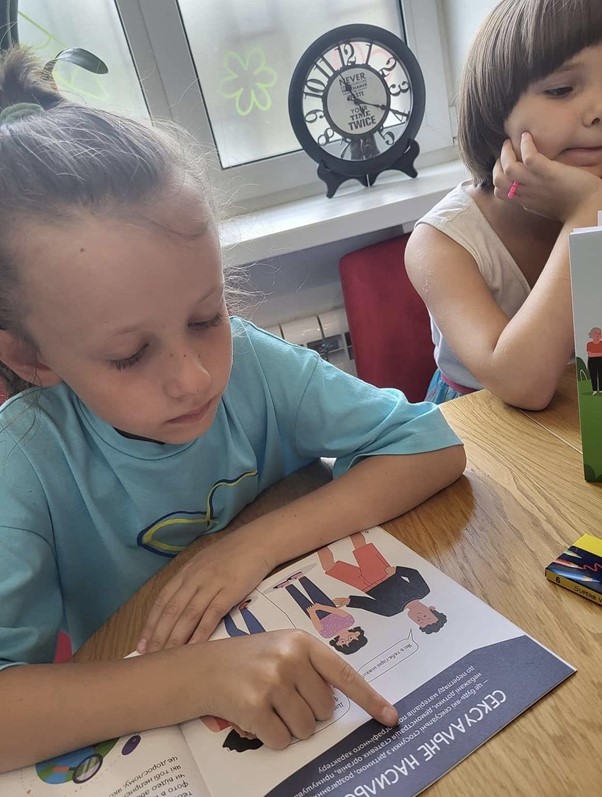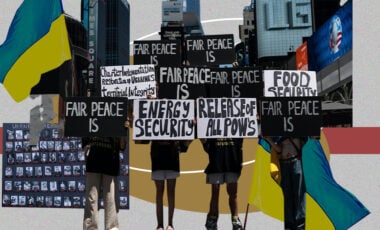Solutions from Ukraine: charitable organization releases book teaching children to recognize and confront violence
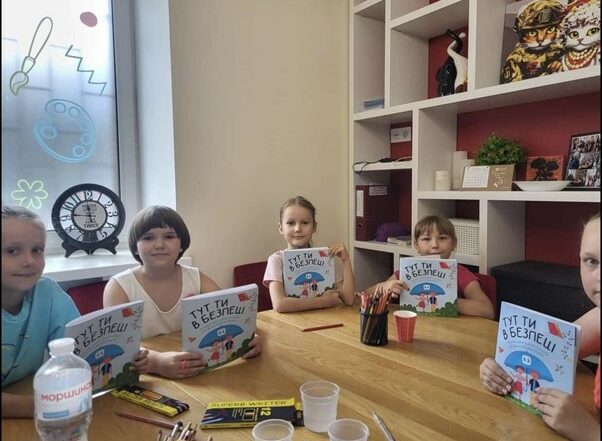
What is the best way to talk to children about violence? How can we educate them to differentiate between violence and not be afraid to stand up against it? The charitable organization, "SOS Children's Towns of Ukraine," has compiled a book with all the answers.
Rubryka writes about this.
What is the problem?
According to a survey by Gradus Research in 2023, most Ukrainians (75%) think that other people should intervene in cases of domestic violence against children. However, only 18% of those surveyed are actually aware of the appropriate course of action in these situations.
"Simultaneously, we observe from our own experiences that children struggle to grasp complex legal terminology and regulations, leading to a distorted perception of this significant subject. The difficulties posed by war urge us to modify conventional education and training methods," Iryna Shcherbinina, who advises on protecting children and youth at the SOS Children's Villages Ukraine, shares her thoughts on Rubryka.
What is the solution?

"Having discussions with children about different dangers, violence, and ways to protect oneself may not be simple, but it is crucial. Having an honest conversation about this topic can prevent potential harm and provide the confidence and knowledge to defend oneself and confront danger," the international charity organization SOS Children's Villages Ukraine emphasizes.
The organization's team has created a unique tool specifically for Ukraine – an interactive hand-drawn book that adapts the Policy for the Protection of Children and Youth.
How does it work?
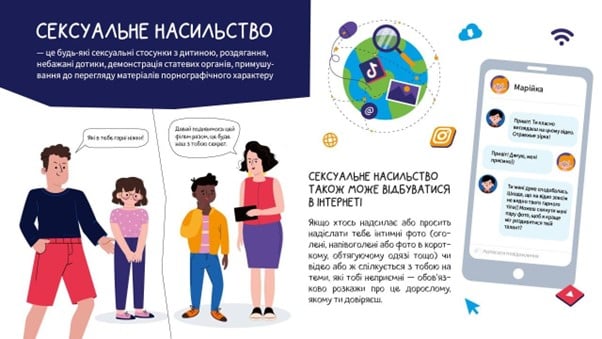
Interactive book fragment
According to the organization, the concept of developing a tailored policy to safeguard children and youth from violence stemmed from the pressing necessity to equip children, their parents, and professionals working with them with easily accessible, comprehensible, and current guidance on how to prevent harm from various expressions of violence.
This picture book is intended for elementary and middle school-aged children, their parents, and professionals who work with children.
The book straightforwardly discusses different forms of violence with tangible illustrations. It offers practical solutions, empowers readers not to fear or be manipulated, and directs children to resources for assistance.
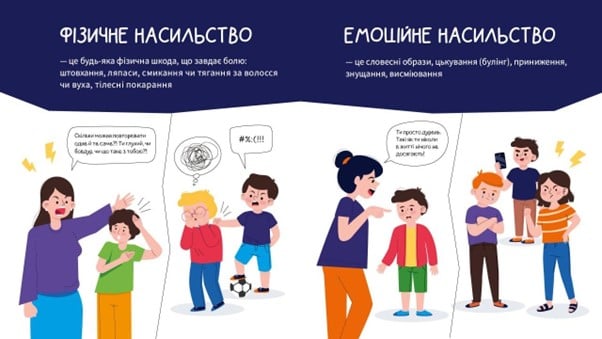
Interactive book fragment
Additionally, child psychologists create numerous hands-on activities, assessments, word puzzles, coloring sheets, and other assignments (with input from children, considering their observations and accounts). These assist children in comprehending information while also aiding specialists in identifying and addressing the repercussions of past violence.
Separate parts of the book will help parents conduct classes independently at home, even if they lack relevant professional experience.
A team of specialists from SOS Children's Villages representing various fields across Ukraine collaborated to develop this policy. This group included psychologists, social workers, and teachers who have hands-on experience working with families and children facing challenging situations such as forced migration and the aftermath of war.
This book would benefit educational institutions, places where children spend time and receive services, and, of course, for families.
Does it really work?
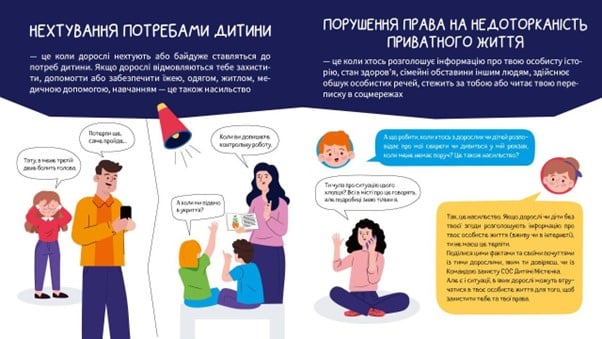
Interactive book fragment
Classes with this book are already taking place in SOS Children's Villages centers throughout Ukraine.
"Preliminary results have shown that children are actively involved in working with the book and show increased interest in those sections that relate to real-life situations. The most interesting for little ones are the sections with practical tasks: children like the opportunity to interact through tasks and games," Iryna Shcherbinina says.
Children in Poltava work with psychologists on the book "Policy for the Protection of Children and Youth." Photo from the organization's archive
She mentions that during times of war, children are exposed to numerous visible and hidden risks, intense tension, and a feeling of unpredictability. There has been a notable increase in instances of violence towards children, particularly in temporarily occupied regions and affected communities.
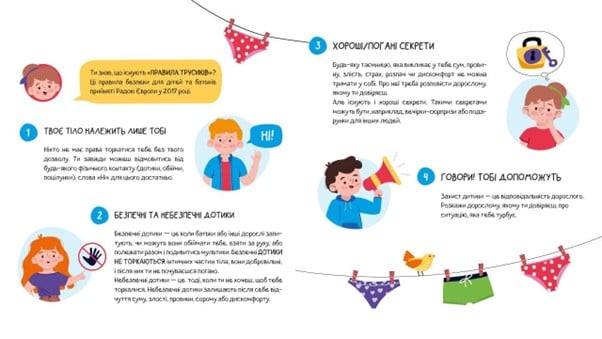
"It is essential for us adults to provide them with tools for self-defense and understanding of their rights. Adapted policies help children feel more protected, know how to act in various unclear or frightening situations, and support their emotional state, allowing them to discuss their fears and experiences in a safe and understandable way. We can and should create a safe and caring environment for our children and youth," Iryna Shcherbinina says.
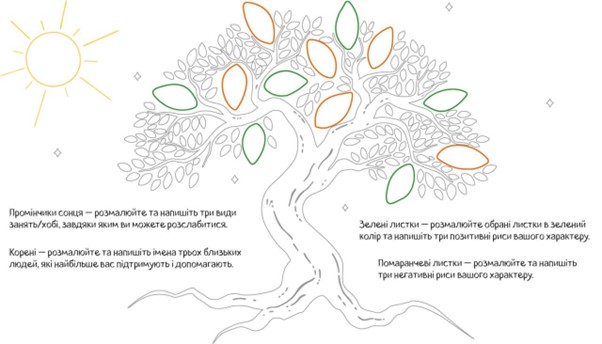
Interactive book fragment
If you're also interested in collaborating and would like to obtain this tool, please email SOS Children's Villages Ukraine at office@sos–ukraine.org.
You can read or download the online version of the Anti-Violence Policy here.
For reference:
It's worth mentioning that "Barnachus" support centers for children impacted by violence are set to open in Dnipro and Lviv by the end of the year.

На освітній платформі Prometheus стартував курс про захист від торгівлі людьми

Дослідження ВООЗ: майже чверть дівчат-підлітків зазнають насильства від інтимних партнерів до 20 років



